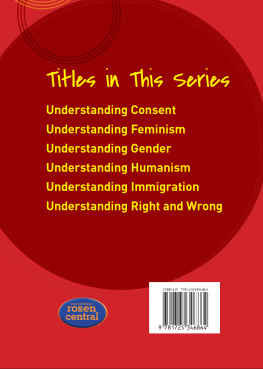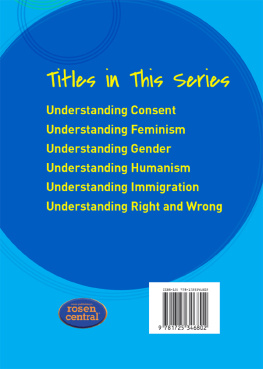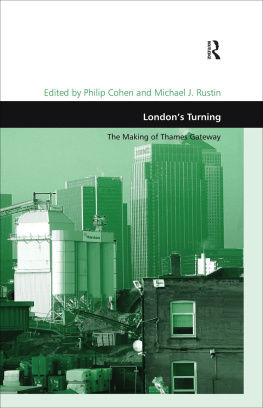
Turning Words, Spinning Worlds
Management, Organizations and Society
Edited by
Professor Barbara Czarniawska, Goteborg University, Sweden
and
Professor Martha Feldman, University of Michigan, USA
Management, Organizations and Society presents innovative work grounded in new realities, addressing issues crucial to an understanding of the contemporary world. This is the world of organized societies, where boundaries between formal and informal, public and private, local and global organizations have been displaced or have vanished, along with other nineteenth-century dichotomies and oppositions. Management, apart from becoming a specialized profession for a growing number of people, is an everyday activity of most members of modern societies.
Similarly, at the level of enquiry, culture and technology, and literature and economics, can no longer be conceived as isolated intellectual fields; conventional canons and established mainstreams are contested. Management, Organizations and Society will address these contemporary dynamics of transformation in a manner that transcends disciplinary boundaries, with work which will appeal to researchers, students and practitioners alike.
| Volume 1 | Contrasting Involvements: A Study of Management Accounting Practices in Britain and Germany
Thomas Ahrens |
Volume 2 | Turning Words, Spinning Worlds: Chapters in Organizational Ethnography
Michael Rosen |
Forthcoming |
Breaking Through the Grass Ceiling
Margaret Alston |
The Poetic Logic of Administration: Styles and Changes of Style in the Art of Organizing
Kaj Skldberg |
Court and Spark: Deal-Making on the Borders of Basic and Applied Research
William Kaghan |
Turning Words, Spinning Worlds
CHAPTERS IN ORGANIZATIONAL ETHNOGRAPHY
Michael Rosen
Copyright 2000 OPA (Overseas Publishers Association) N.V. Published by license under the Harwood Academic Publishers imprint, part of The Gordon and Breach Publishing Group.
All rights reserved.
No part of this book may be reproduced or utilized in any form or by any means, electronic or mechanical, including photocopying and recording, or by any information storage or retrieval system, without permission in writing from the publisher.
First published 2000 by Harwood Academic Publishers
This edition published 2013 by Routledge
2 Park Square, Milton Park, Abingdon, Oxon, OX14 4RN
711 Third Avenue, New York, NY 10017
Routledge is an imprint of the Taylor & Francis Group, an informa business
British Library Cataloguing in Publication Data
A catalogue record for this book is available from the British Library.
ISBN: 90-5823-101-1
ISSN: 1028-8597
for my wife, because Ive made days difficult for my children, who have fashioned my heart and smiled for my partner, who carries so much the weight for my friends, who have showed me darkness and light for an angel, who builds redemption
Table of Contents
Gideon Kunda |
Dvora Yanow |
Michael Rosen |
Gideon Kunda
Stanford and Tel Aviv Universities
Ethnographys self-claimed mandate is the scientific study of culturethat hard to define yet very real grab-bag of rule-bound practices, norms and values, knowledge, belief, shared representations and collective experiences that give meaning to a groups way of life. In practical terms this means that, in the final analysis, ethnographys subject matterwhether, as in anthropology, in far off exotic lands or, in its sociological version, around the corner and down the streetis, perhaps more than anything else, the study of boundaries: the fine and refined lines as well as the coarse and brutally imposed ones that delineate the contours of the subjects world, give it meaning, and distinguish it from the worlds of the writer and the readers.
In order to discover the boundaries that structure the lives of others one must, at least temporarily, relinquish ones own. The method of ethnographyto the extent that it can be specifiedrests on two key directives: immersion and empathy. In other words, ethnography requires its practitioners to cross those personal and collective boundaries that define self and home and enter, as deeply as possible, into the unknown worlds of others. Such an experience is clearly more than techniqueits intensity, the sustained challenges it offers to ones taken-for-granted world, the alternative possibilities for living it presents, carry with it both the promise and the risk of change, of transformation.
These effects of fieldworkwell known in ethnographic circlesare, ironically perhaps, more acute when the field is closer to home. In traditional ethnographythe study of the periphery from the center, the illiterate by the literate, the second, third and fourth worlds by the firstgeographic, political, cultural and personal barriers made field-work a distinct, circumscribed and, ultimately, a protected phase of research which one entered and exited at well-defined moments. But the effort to bring ethnography hometo apply the tools of the trade to the realities of the ethnographers own societyWestern industrial and postindustrial society, the worlds and subworlds of the center, the metropolisredefined the nature of the ethnographic field and its boundaries. Here, the subjects are more similar to oneself; the rewards they have to offer are more tempting; their vices familiar and shared; and one continues to live in close proximity with themand their cultureeven after the field experience is over. Under such circumstances, to preserve and sustain an ethnographic frame of mind, to continue to follow ethnographys mandate, is a challenge of no small magnitude.
This book is an account of Michael Rosens encounter with precisely such a challenge. On the face of it, this collection is about doing an ethnography of the centerthe study of cultural orders in the heart of the metropolis. In a world where it is still easier to study the other rather than the self, the low rather than the high, the peripheral rather than the central, Michael chose to go the other way, taking as his subject the complex, frenzied, interrelated occupational worldsfinance and advertisingand mirror image subworldsdrug dealingthat create, channel and trade in the currencies of meaning that sustain and animate the cultural economy of the metropolis and the lives of its residents. This tantalizing collage of images, insights, stories, analysis and reflection gives the reader a taste of what ethnography can and should accomplish when directed at the citadels of power rather than its outposts.
There are good reasons why this brand of ethnography is more widely preached than practiced. These include the inherent difficulty and overwhelming complexity of the subject matter; the need to gain highly specialized knowledge; the problems of access to well-guarded and secretive worlds; the fast pace of the subjects lives; and, not least, the fact that their world is insulated and obscured by thick layers of multimedia, ready-made images, interpretations and self-presentation which clutter up the dense symbolic space within which ethnography must seek a niche. While reading Rosens essays, the reader is invited to consider the creative ways in which he addresses these problems. In this respect, the book offers students of postindustrial and global culture exemplars for applying the traditional techniques of ethnography, grounded as they are in a nineteenth-century colonial world, to the cultural realities of the twenty-first century.













